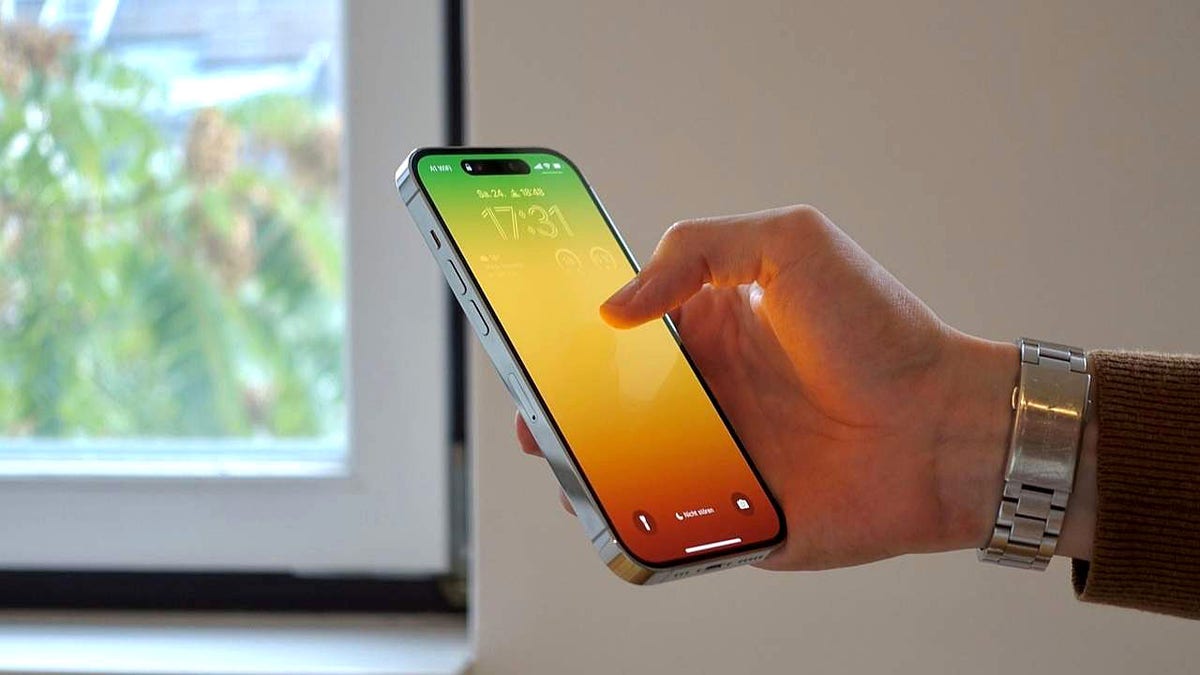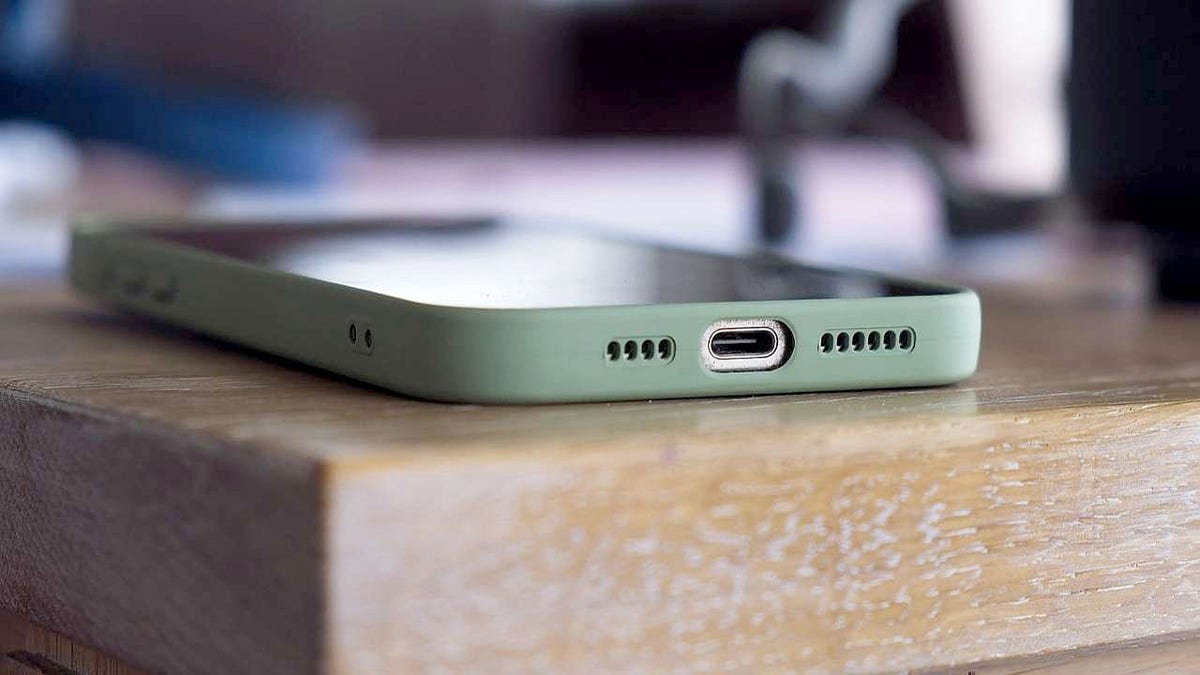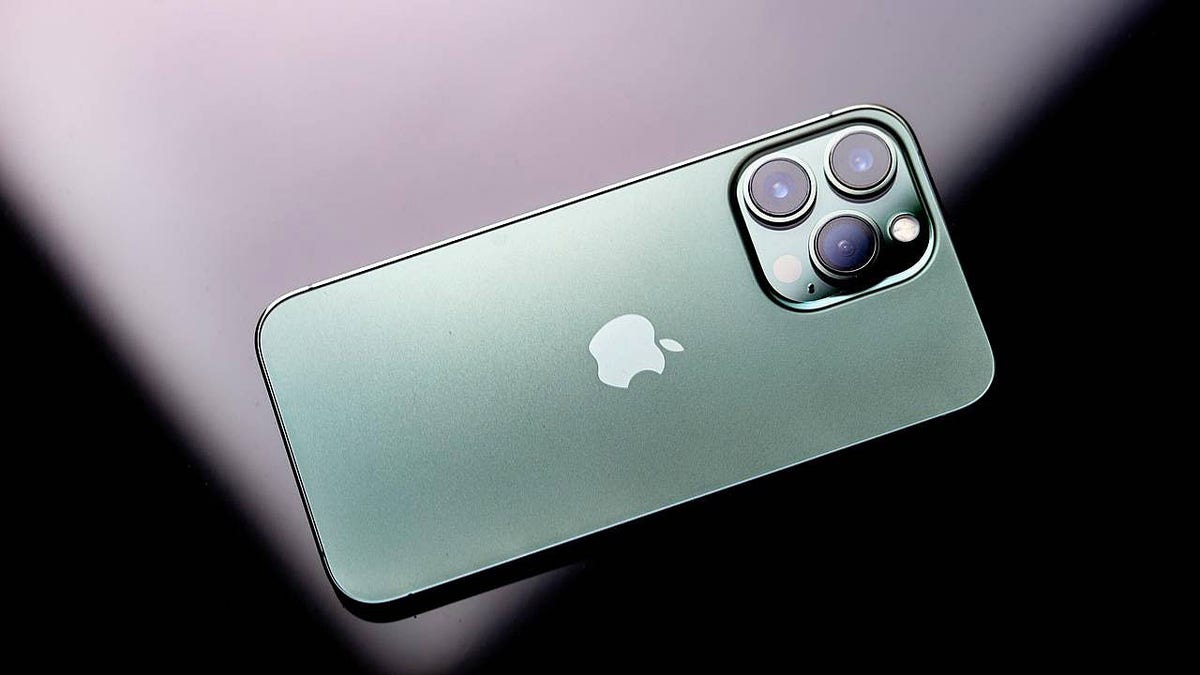New research may shock a lot of Apple fans: iPhone users are actually more likely to fall for online scams than Android owners. The problem isn’t the device itself; it’s the habits of the people using it.
The survey from Malwarebytes, a global cybersecurity company, of 1,300 adults across the United States, United Kingdom, Austria, Germany and Switzerland, found that many iPhone owners put blind trust in Apple’s security. That confidence makes them easier targets for scammers who count on overconfidence.
5 PHONE SETTINGS TO CHANGE RIGHT NOW FOR A SAFER SMARTPHONE
Sign up for my FREE CyberGuy Report
Get my best tech tips, urgent security alerts, and exclusive deals delivered straight to your inbox. Plus, you’ll get instant access to my Ultimate Scam Survival Guide — free when you join my CyberGuy.com/Newsletter

New research suggests iPhone users are more likely to fall for online scams than Android users. (Kurt "CyberGuy" Knutsson)
The truth about iPhone security habits
Here’s what the Malwarebytes survey uncovered:
- More than half of iPhone users (53%) admitted they’ve fallen for a scam, compared to 48% of Android users.
- Only 21% of iPhone owners add security software, while 29% of Android users do.
- Just 35% of iPhone users set unique, strong passwords, compared to 41% of Android owners.
- 47% of iPhone users grabbed a “best price” deal from shady sellers, compared to 40% of Android users.
- 41% of iPhone owners DM’d sellers for discounts on social media, compared to 33% of Android owners.
The takeaway? It’s not the phone that makes you safe, it’s your choices every time you go online.

A survey from Malwarebytes found that many iPhone owners blindly trust Apple’s security measures, which makes them easier targets for scammers who count on overconfidence. (Kurt "CyberGuy" Knutsson)
Why this matters
For years, Apple’s reputation led iPhone users to believe they were automatically safer. This study proves otherwise. Cybercriminals don’t care what brand of phone you carry; they care about how easy it is to trick you. And right now, too many iPhone users are letting their guard down.

Many iPhone software updates contain security patches that block new threats to keep users safe. (Kurt "CyberGuy" Knutsson)
7 ways to stay safe on iPhone
Even if you love your iPhone, staying safe means making smarter choices online. Follow these steps to keep scammers one step behind you.
1) Stop and double-check
If something feels off, whether it’s a text, link, or offer, pause. Scammers rely on urgency to trick you.
2) Avoid random links and shady DMs
Never click on links or QR codes from unknown senders. Always visit the company’s website directly. Also, use strong antivirus software to block malicious links before they reach you. The best way to safeguard yourself from malicious links that install malware, potentially accessing your private information, is to have strong antivirus software installed on all your devices. This protection can also alert you to phishing emails and ransomware scams, keeping your personal information and digital assets safe.
Get my picks for the best 2025 antivirus protection winners for your Windows, Mac, Android and iOS devices at CyberGuy.com/LockUpYourTech
3) Keep your software updated
Apple pushes out updates for a reason. Many contain security patches that block new threats. Make sure your iPhone is always running the latest iOS and app updates.
How to update iOS:
- Go to Settings
- Tap General
- Click Software Update and install any available updates.
Manually updating apps:
- Open the App Store.
- Tap your profile icon at the top right.
- Scroll down to see pending updates.
- Tap Update All (or update individual apps).
Enabling Automatic App Updates:
- Open Settings.
- Scroll down and tap App Store.
- Under Automatic Downloads, toggle on App Updates.
This way, your phone will always stay current, reducing the chances that hackers can exploit old vulnerabilities.
IS YOUR PHONE HACKED? HOW TO TELL AND WHAT TO DO
4) Pick stronger, unique passwords
Using the same password everywhere is a hacker’s dream. Create unique ones for each account. Consider using a password manager, which securely stores and generates complex passwords, reducing the risk of password reuse.
Next, see if your email has been exposed in past breaches. Our #1 password manager (see CyberGuy.com/Passwords) pick includes a built-in breach scanner that checks whether your email address or passwords have appeared in known leaks. If you discover a match, immediately change any reused passwords and secure those accounts with new, unique credentials.
Check out the best expert-reviewed password managers of 2025 at CyberGuy.com/Passwords
5) Consider using a personal data removal service
Scammers thrive on the personal details they can easily find about you online, and iPhone users in particular tend to overshare and trust their device to keep them safe. That leaves a bigger trail for criminals to exploit. A personal data removal service helps wipe your information from data broker sites and shady lists that fuel targeted scams.
While no service can erase everything, it makes it much harder for crooks to connect the dots and trick you. They aren’t cheap, and neither is your privacy. These services do all the work for you by actively monitoring and systematically erasing your personal information from hundreds of websites. It’s what gives me peace of mind and has proven to be the most effective way to erase your personal data from the internet. By limiting the information available, you reduce the risk of scammers cross-referencing data from breaches with information they might find on the dark web, making it harder for them to target you.
Check out my top picks for data removal services and get a free scan to find out if your personal information is already out on the web by visiting CyberGuy.com/Delete
Get a free scan to find out if your personal information is already out on the web: CyberGuy.com/FreeScan
6) Turn on two-factor authentication (2FA)
Turning on two-factor authentication (2FA) is one of the most powerful ways to lock down your accounts. It adds an extra login step that blocks criminals, even if they already have your password. On your iPhone:
- Open the Settings app.
- Tap on [your name] (your Apple ID at the top).
- Select Sign‑In & Security.
- Tap Turn On Two‑Factor Authentication, then tap Continue.
- Enter a trusted phone number to receive verification codes (via text or call), tap Next, and enter the code sent to you to complete the setup.
Once set up, you’ll get a code each time you or someone else tries to sign in.
7) Don’t trade personal info for deals
Skip giving out your phone number or email just to snag a coupon, unlock a discount code, or enter a giveaway. Scammers use those details to target you later with spam, phishing attempts, and even identity theft schemes. Instead, create and use an alias email address for sign-ups, promotions, or contests. That way your real inbox stays private, and suspicious offers won’t expose your personal data.
For recommendations on private and secure email providers that offer alias addresses, visit CyberGuy.com/Mail
CLICK HERE TO GET THE FOX NEWS APP
What this means for you
If you own an iPhone, don’t assume Apple’s built-in tools are enough. Android users appear to be more proactive, but everyone is vulnerable. Real security comes from your habits, not your hardware.
Kurt’s key takeaways
The bottom line: iPhone users are falling for scams more often because they trust too much and protect too little. The fix is simple: be cautious, be skeptical, and add extra protection. Because when it comes to scams, it’s not about the device, it’s about you.
Do you still believe Apple makes you safer, or are you ready to admit that scammers can outsmart any phone? Let us know by writing to us at CyberGuy.com/Contact
Sign up for my FREE CyberGuy Report
Get my best tech tips, urgent security alerts, and exclusive deals delivered straight to your inbox. Plus, you’ll get instant access to my Ultimate Scam Survival Guide — free when you join my CyberGuy.com/Newsletter
Copyright 2025 CyberGuy.com. All rights reserved.
